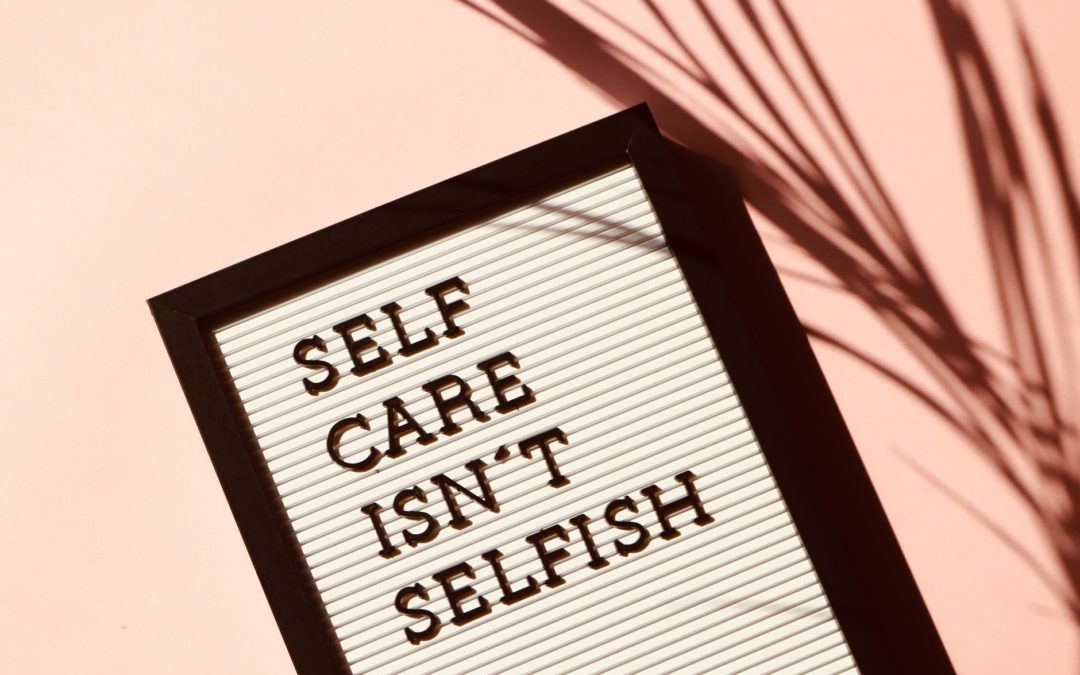During an uncertain situation like the COVID-19 pandemic, it’s easy to feel stressed, overwhelmed, and anxious. A new reality of shelter-in-place orders, social isolation, and increasing financial pressures can easily take a toll on your mental health. You may worry about yourself or a loved one getting sick, or feel frightened about what the future holds. Read on for self-care tips to help you manage your mental health.
Maintain Social Connections
People are social creatures, and social support is critical to maintaining mental health. Isolation is one of the biggest hazards to our mental health during quarantine. Fortunately, technology offers us more ways to stay in touch than ever before. Stay in regular contact with your friends and family in safe ways. Here are several ideas for staying connected:
• Chat with friends and loved ones on social media. Post photos and supportive comments.
• Schedule regular video chats with family and friends.
• Join online forums to discuss shared interests and connect with others in the community.
Take a Break from the News
It’s understandable to want to know what’s happening. However, staying glued to the news day and night is a recipe for anxiety. Constant exposure to news about the coronavirus pandemic can take a toll on your mental, emotional, and even physical health.[1] Limit the amount of time you watch the news each day, and make sure you’re getting your news from impartial, reputable sources. You may find it helpful to subscribe to a news podcast rather than flipping channels or searching for news online. Turn off the news once the podcast is done. Another option is to avoid the news altogether and ask a friend or family member to give you the most important updates. Try to find a balance that lets you stay informed without feeling overwhelmed.
Stick to a Routine
Keeping up a regular schedule can benefit your mental health and provide a sense of normalcy. Do your best to keep a consistent routine for meals, exercise, and work. Go to bed around the same time each night; a consistent bedtime can help improve your sleep. The predictability of a routine can give you a feeling of control.
Schedule “Worry Time”
Setting aside time to worry may sound counterintuitive. However, it can be an effective tool for managing anxiety.[2] Rather than worry all day, every day, you may be able to contain your anxious thoughts using this technique.
• Schedule 15 to 30 minutes per day as your “worry time.”
• During your “worry time,” think about your worries, write in a journal, or talk to someone about what’s making you anxious.
• When time is up, tell yourself it’s time to get on with your day. Do an activity that distracts you from your worries.
• When you find yourself worrying during the day, remind yourself that you’ll worry about it later, at the scheduled time.
Eat Healthy Foods
A well-balanced diet is essential for staying healthy. Avoid using quarantine as an excuse to over-indulge in junk foods. Eat plenty of fresh vegetables, lean meats, and whole grains. Taking care of your body will improve your mental health as well as your physical health.
Physical Activity
Regular exercise is critical to your well-being during the pandemic. Physical activity can reduce anxiety, improve your mood, and even boost your immune system.[3] Here are a few suggestions to get started.
• Take a virtual exercise class. Many fitness studios and trainers are offering sessions online.
• Look for exercise videos on YouTube. Whatever style of workout you enjoy, chances are you can find a YouTube video to follow.
• Tackle a calorie-burning household task such as mowing the lawn or cleaning out the attic.
• Take a walk, ride a bicycle, or go for a jog if you can do it safely and maintain social distancing.
• Set a weekly exercise goal and make a plan to achieve it.
Get Adequate Sleep
Sleep is always an important component of your health. However, many people have found it challenging to get enough sleep during the COVID-19 pandemic. Follow these tips to improve your sleep.[4]
• Go to bed and wake up on a consistent schedule.
• Establish a routine to help you wind down before bed.
• Avoid working in bed. Don’t use your bed for anything except sleep.
• During the day, spend time outdoors in natural light (as long as you can do so and maintain social distancing).
• Avoid screen time for at least an hour before bed.
• Don’t take long naps during the day.
Seek Help
Many physicians and mental health professionals are offering telehealth appointments during COVID-19. If you’re struggling with anxiety, depression, or other mental health challenges, reach out for help.
The COVID-19 pandemic is a stressful time for everyone. Follow the tips outlined here to improve your mental health and well-being.
__________
Sources Cited:
[1] verywellmind.com/is-watching-the-news-bad-for-mental-health-4802320 [2] psychologytoday.com/us/blog/what-mentally-strong-people-dont-do/201811/simple-effective-trick-stop-worrying-so-much [3] norwalkhospital.org/newsroom/article-listing/adults-exercise-and-covid19 [4] sleepfoundation.org/sleep-guidelines-covid-19-isolationThe National Society of Collegiate Scholars (NSCS) is an honors organization, boasting 320 plus chapter nationwide, that recognizes high-achieving first-and second-year students. With its three pillars of scholarship, leadership, and service, NSCS is proud to provide career and graduate school connections, leadership and service experiences, practical and skills-based content, access to discounts and savings, and over a million dollars in scholarships, chapter funds and awards annually. To learn more about joining the NSCS honors society, visit us at http://www.nscs.org/join.

